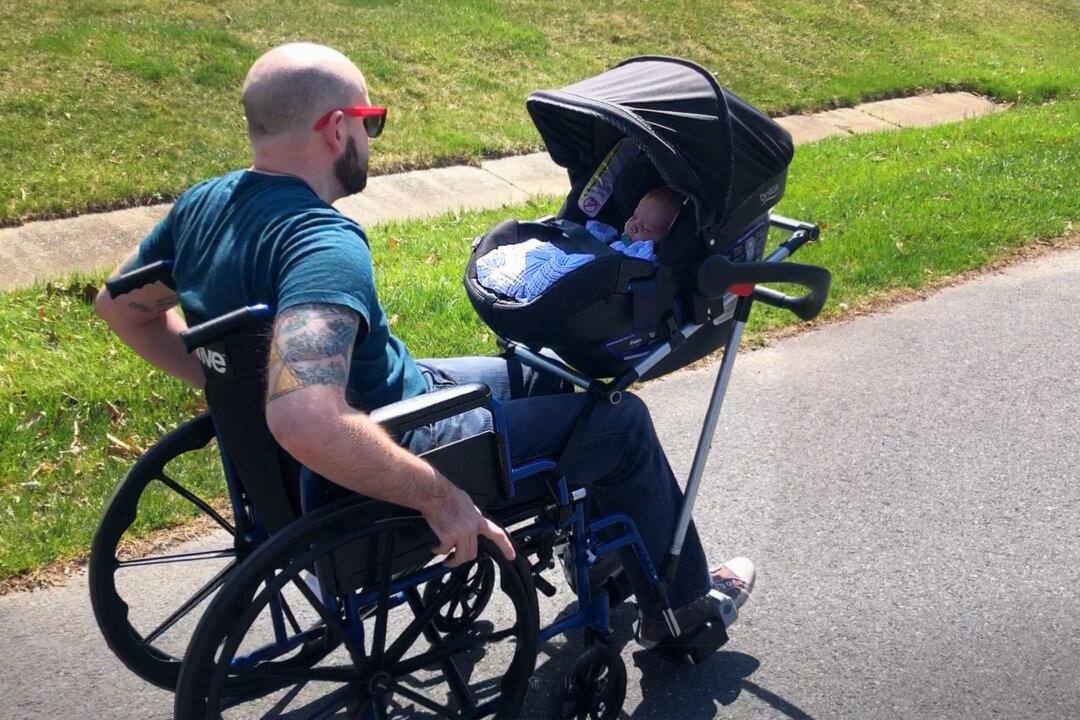Thanks to a few innovative high school students, a father who lost his ability to walk can now get around, unassisted, with his newborn son in his stroller.
It started when 10 of Matt Zigler’s students at Bullis School in Potomac, Maryland, were tasked with coming up with an invention for one of his colleagues. Fellow teacher Chelsie King needed a solution for her husband Jeremy, after brain surgery compromised his balance.





